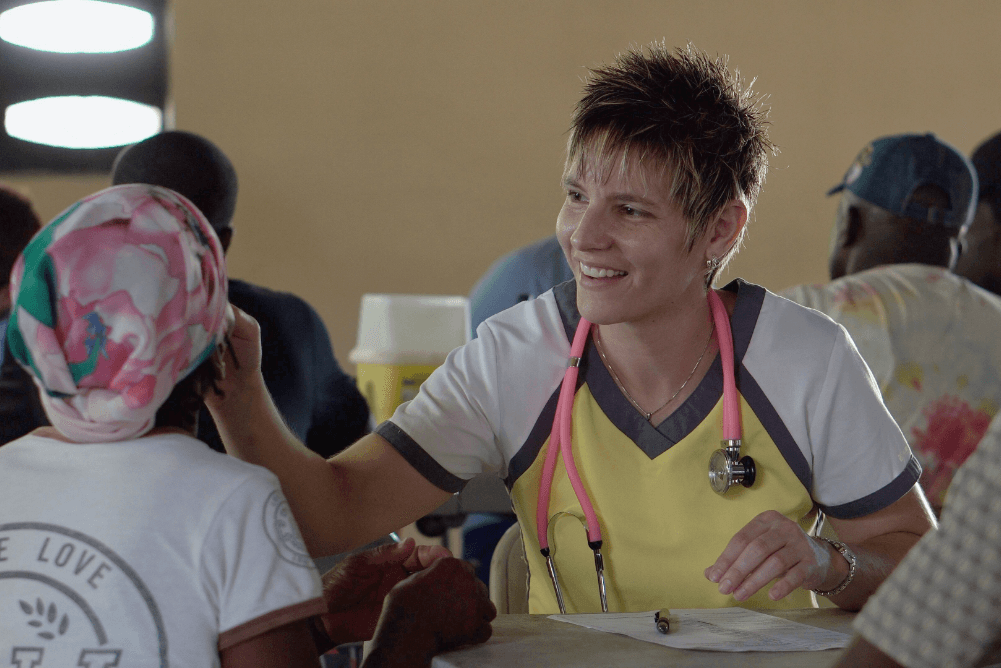How to Deal with Medico Legal Cases?
A medico-legal case (MLC) is a case of damage or disease that is being investigated by law enforcement agencies in order to determine and fix the criminal culpability for the case in accordance with the country's laws.

According to medical ethics, medical records are a "legal document”. Medical records contain information about current and future medical treatment. They are mostly utilized for the patient's current and ongoing care as a documented collection of information on his or her health and treatment. Medical records are also utilized in the administration and development of healthcare facilities and services.
Patients, lawyers, doctors, insurance companies, and government organizations are all involved in medical records claims. Communication between the two sides, mainly doctors and patients, is facilitated by the information obtained about them. The information collected on patients treated by doctors and the hospital's patient record is regarded as a privilege in both the public and private sectors. The patient's record is used to guarantee that the patient's care is consistent.
Collect and provide patient data for planning and development services, enable connection with the clinical service provider through information sharing and other health professionals who contribute to the treatment of patients, and used for research, teaching, and learning, and provide a permanent record of the activities and events during patient care for medico-legal purposes (in compliance with the legal requirements and the interests of the patient). The main aim of doctors, nurses, pharmacists, and nurses is to treat diseases or improve patients’ health, whether planned or unplanned, directly or indirectly.
All events that are expected or unforeseen occur on patients, which are generally witnessed by doctors, nurses, pharmacists, and other medical practitioners, and are referred to as an "incident”. The chronology of actions and events can help clarify the causes and consequences, as well as the date, time, and comprehensive information provided by the reporter is required in medico-legal situations. Medical records serve as a logbook and documented evidence in legal cases involving medicine.
Steps to manage potential Medico-Legal Cases
Medical Records’ Ownership
Patient records in any cases possibly involving medico-legal cases must be kept in a secure location and should be protected. Patient data and reports on infectious diseases, births, fatalities, baby deaths, necropsy, child abuse, and drug abuse, among other things, must be kept up to date. Medical records cannot be released to anybody without the permission of the hospital's director. If a Legislation Case in the Court of Medical Record is involved, the record shall be retained until the case is concluded or closed. With a subpoena, a court might request a summary of a medical record that was created in front of the court. Whether the record can be utilized as evidence is determined by the Court's decision. If the records are to be used as evidence, hospital representatives must first get a court order requiring the copying, and the original record must be released but returned after the copy is completed.
Hospitals cannot refuse to comply with a subpoena mandating the production of medical records. If the person disobeys, they will be charged with "Contempt of Court." If there are reasons to refuse to produce the records and you haven't provided evidence of "reasonable reasons," you should explain them to the Court during the subpoena hearing. The Court's ruling as a theory of private communications among patients, clinicians, and a hospital is far too complicated to be explained.
Medical Documentation
Authorization Letter for Medical Reports Application, submitted by a third party must meet the following requirements:
- The original consent letter was signed by the patient of their heir. A copy of the applicant's marriage certificate or birth certificate demonstrating the patient's relationship.
- If the patient dies, the legitimate heir confirmation should include the essential documents as proof, as required by law.
- Foreign patients who cannot be traced or are dead, or whose heirs cannot be contacted, should submit a Medical Report Application with a letter of consent from the embassy of the country in question.
- A letter of approval from the heir is required for patients under the age of 18 or for patients who are unconscious or mentally impaired or have died.
Records of the application of Medical Report shall be retained in the Department until the record is inactive for 10 years in the case of medico-legal or legislative matters.
Patients' Rights to Health Information
With growing user awareness in the realm of health care, there was a rise in interest in the issue of patient rights. Unauthorized parties will not be able to access patient information that easily.
Physical ownership records of hospitals and patients, it has been asserted, have a valid need for the information contained therein. If the hospital allows patients access to such material, it must do so underwritten procedures and regulations that spell out patients' rights to classified information to the extent that the hospital has access to it to communicate with them. After discharge, the doctor who had completed the patient's record should restrict this information.
The information on a patient's treatment and other investigations that were conducted at the hospital was only released as a copy of the Medical Report, not the real patient record.
The report application process is similar to the Medical Report Guidelines for Hospitals and Medical Institutions published by the Ministry of Health. To avoid a repeat check-up, X-ray film might be given to patients who should be sent to other institutions, including private hospitals.
Giving Authorized Persons Access to Health Information
The majority of applications/requests from third-party payer plans, particularly insurance companies, lawyers, police, and patients, their families, medical personnel, public agencies, and private agencies involved in inpatient treatment will want their information.
The hospital can deliver superior services by maintaining good public relations with the applicant. Patient information, such as the sort of ailment they have, is private and does not need to be made public. This privilege was formed and justified in terms of law and ethics because people believe that patients should feel safe in providing information to doctors for them to receive the best possible treatment. It is not permitted for any party to provide information over the phone for any reason.
To those who are under the age of eighteen and have been legally declared disabled
It may be signed on behalf of the patient by the mother/father, guardian, or lawyer if the patient is under the age of 18 or is mentally ill. When a patient passes away, the administrator of the property must sign a will in front of the Department / Medical Records Unit by presenting legal proof in the form of court records, a permission letter from the lawyer, the heirs/property holders, or those who have given permission.
Agency of the Government
Medical reports are frequently requested by government departments and the public sector. The majority of the application is completed in private by their agents or via mail. It is preferable to acquire the patient's approval first so that the patient is aware of what they signed.
The Exemption Letter of Consent: An application from an agency that has been authorized to investigate under the law's requirements, such as:
- Indian Police Department
- Court
- "Any agency that has been authorized by law to obtain a patient's medical report."
- Lawyers
Lawyers who want to disseminate patient information must include the patient's written consent, whether the patient is represented by the lawyer or not. A judicial action, such as filing a subpoena, can be utilized instead if the patient's written consent is not obtained. Lawyers for medical institutions who are pursuing a legal case against the institution are entitled to rapid access to the patient's information. As a result, in our opinion, hospitals own the patient's information and can prevent it from leaking out, except in cases of subpoena, the importance of patient information secured by the court, and lawyers representing patients can obtain the right to the patient's information that was ordered by the court on the condition that the objective is met.
Conclusion
Finally, with a basic understanding of this blog, the public, employers, government organizations, and others can be educated on medicolegal cases that must be handled by the health authorities.
The importance of patient information and rights, as well as the doctor's relationship with the patient on how to obtain information about the patient's disease under hospital rules, to prevent and reduce misuse of information or staff negligence, and to ensure that potential medicolegal cases are well maintained.







